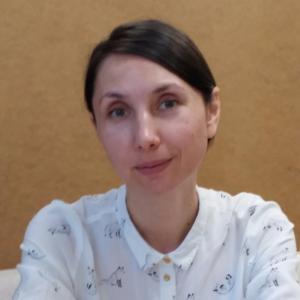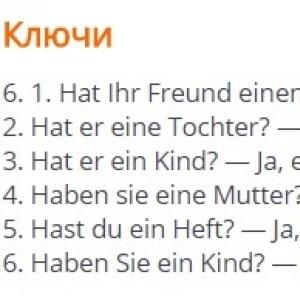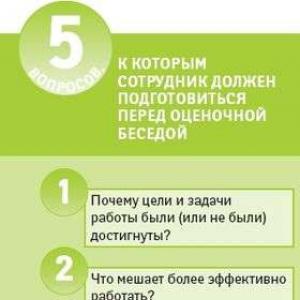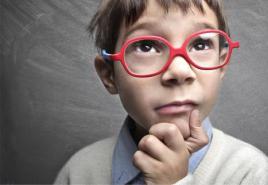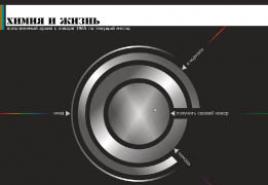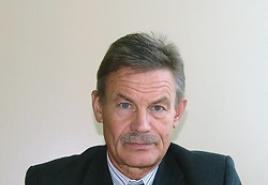Middle School of General education. Phrases in German with translation on the topic “School and Education Secondary school translation into German
Text “My School” in German. The essay “Meine Schule” is given with a translation into Russian. .
Zum Lernen ist keiner zu alt - it's never too late to learn.
Essay "Meine Schule"
Mit 6 oder 7 Jahren gehen heute die Mädchen und Jungen in die erste Klasse. Die modernen Schulen sind sehr gut ausgestattet. Hier gibt es alles für Bildung und Erziehung der heranwachsenden Generation: helle Klassenräume, Bibliotheken, Computerzimmer, Fremdsprachenkabinette, Turnhallen und anderes.
Das Studium in der Schule dauert 11 Jahre. Während des Studiums erlernen die Schüler verschiedene Fächer: Russisch, Literatur, Geschichte, Mathe, Physik, Chemie, Biologie, Deutsch, Englisch, Französisch u. a. Die Kinder haben in der Schule Sportstunden und arbeiten in der Werkhalle. Sie können ihre Kenntnisse in verschiedenen Zirkeln erweitern. Gewöhnlich besuchen die Kinder die Schule 5-6 Tage pro Woche und pro Tag haben sie 4-6 Stunden.
Heute gibt es verschiedene Schularten: staatliche und private Schulen, Gymnasien und Lyzeen. Ich besuche ein Gymnasium. Mein Gymnasium ist eine Schule mit erweitertem Fremdsprachenunterricht. Ab 2. Klasse erlernen wir Englisch, ab 5. Deutsch und ab 9. - Französisch. Das Studium gefällt mir sehr, es ist interessant und nicht besonders schwer. Fast jeden Sommer be suche ich mit meinen Mitschülern eines der fremdsprachigen Länder. Diese Reisen helfen beim Studium der Sprache und gebe die Möglichkeit, die Landeskultur kennenzulernen.
Es gibt auch Schulen mit erweitertem Biologie-, Literatur-, Geschichte-, Matheunterricht. Also, man kann wählen!
Am Schluß sollen die Schüler Reifeprüfungen ablegen und, wer die Prüfungen gut bestanden hat, bekommt das Reifezeugnis.
Wortschatz - words to the text "Meine Schule"
- ausstatten - to equip
- die heranwachsende Generation - the younger generation
- die Prüfungen bestehen - pass the exams
- verschiedene Schularten - different types of schools
- staatlich - state
- privat - private
- die Mitschüller - classmates
- die Reifprüfungen - matriculation examinations
- die Reifezeugnis - matriculation certificate
- die Prüfungen ablegen - pass exams
Fragen zum Text - questions to the text
- Wie sind die modernen Schulen ausgestattet?
- Wie lange dauert das Studium in der Schule?
- Welche Fächer erlernt man in der Schule?
- Be suchen Sie germen die Sportstunden?
- Versäumen Sie oft die Stunden?
- Wieviel Stunden haben Sie pro Tag?
- Welche Schularten gibt es heute?
- Weiche Schule besuchen Sie?
Text “My School” with translation
Today, girls and boys go to first grade at 6 or 7 years old. Modern schools are very well equipped. There is everything for the education and upbringing of the younger generation: bright classrooms, libraries, computer rooms, language rooms, gyms and much more.
Schooling lasts 11 years. During their studies, students study various subjects: Russian, literature, history, mathematics, physics, chemistry, biology, German, English, French and other subjects. The children have physical education lessons at school and work in the workshop. They can expand their knowledge in different areas. Typically children attend school 5-6 days a week and have 4-6 lessons per day.
Today there are different types of schools: public and private schools, universities and lyceums. I go to high school. My gymnasium is . From 2nd grade we study English, from 5th grade - German, and from 9th grade - . I really like studying, it's interesting and not very difficult. Almost every summer I visit one of the foreign language countries with my classmates. These trips help to learn the language and provide an opportunity to get acquainted with the culture of the country.
There are also schools with in-depth study of biology, literature, history, and mathematics. There are plenty to choose from!
To graduate from school, students must take exams, and those who pass the exams will receive a school completion certificate.
Questions to the text about school
- How are modern schools equipped?
- How long does it take to study at school?
- What subjects do you study at school?
- Do you like to attend sports classes?
- Do you often miss classes?
- How many lessons do you have per day?
- What types of schools exist today?
- What school do you attend?
With this article you can easily talk or write about your school in German.
Questions on the topic "School":
Wo liegt sie? -Where is it?
Wie ist sie? -What is she like?
Welche Räume gibt es hier? - What kind of offices are there?
Wo liegen diese Räume? - Where are these offices located?
Wie kann sie sein? -What could she be like?
Welche Schulfächer gibt es in der 6. Class? - How many subjects are there in 6th grade?
Und in der 7. Class? - And in the 7th?
Was nehmen die Kinder in die Schule mit? - What do children take with them to school?
Welchen Stundenplan wünschen sich einige Kinder? - What kind of schedule do some children want to have?
Story about school in German:
Das Gebäude meiner Schule liegt in der ____ Straße, das ist ein zweistöckiges Gebäude.
My school is located on _____ street. This is a two-story house.
Vor dem Schulgebäude befindet sich ein Schulhof. Da gibt es einen großen Sportplatz. Auf diesem Sportplatz können die Schüler während der Pausen und nach dem Unterricht spielen und Sport treiben.
In front of the school there is a school yard. There is a large sports ground. On this sports ground, students can play or exercise during breaks and after classes.
Durch die breite Eingangstür kommt man in die Vorhalle. Hier ist die Garderobe. Im Erdgeschoss befindet sich das Schuldirektorskabinett, die Bibliothek, die Speisehalle, der Sportsaal und das Artzkabinett. Im Erdgeschoss sind auch Klassenzimmer. Hier lernen die Schüler der ersten-dritten Klassen.
Wide entrance doors lead to the lobby. This is where the wardrobe is located. On the ground floor there is the director's office, a library, a dining room, a gym and a doctor's office. There are also classrooms where first to third grade students study.
Im ersten Stock befindet sich das Lehrerzimmer und viele verschiedene Klassenzimmer. Das sind Physik-, Mathematik-, Chemie-, Geschichte-, Biologie- und Fremdsprachenkabinette.
On the second floor there is a teacher's room and many different classrooms: physics, mathematics, chemistry, history, biology and foreign languages.
Alle Klassenzimmersind groß, hell und gemütlich. Sie sind immer sauber. In den Klassenzimmern stehen Tische, Stühle, Bücherschränke. In jedem Kabinett hängt natürlich eine breite Tafel.
All offices are bright, large and cozy. They are always cleaned. The classrooms have tables, chairs, and bookcases. There is a wide board hanging in each office.
Meine Schule hat gute Traditionen. Die Schulabende, Sportfeiertage, verschiedene Treffen sind immer sehr interessant.
My school has good traditions. School evenings, sports festivals and various meetings are always very interesting.
Unterschiede zwischen der russischen und deutschen Schule
Differences between Russian and German schools
In Russland ist der erste Schultag immer der 1. September. In Deutschland enden die Sommerferien im August und je nach Bundesland zu verschiedenen Zeiten.
In Russia, the first day of school is always the first of September. In Germany, the summer holidays end in August and, depending on the federal state, on different dates.
Nach russischer Tradition lauten ein Schuler der elften Klasse und eine Schulerin der ersten Klasse die erste Klingel.
According to tradition in Russia, an eleventh-grade student and a first-grade student ring the first bell: they ring a bell.
Nach dem ersten September ubernehmen die Schulklassen der Reihe nach einen „Ordnungsdienst". In der deutschen Schule gibt es so etwas nicht.
In Russia, after the first of September, classes take turns to begin so-called “duty.” There are no such “duties” in German schools.
Mit Beginn der verregneten herbstlichen Tagen mussen die russischen Schuler Wechselschuhe mitbringen.
With the arrival of rainy autumn days in Russia, students have to wear replacement shoes.
In der russischen Schule muss man nicht nur lernen, sondern auch sich an verschiedenen Veranstaltungen beteiligen: z.B. im Herbst am "Herbstball", im Winter an der Weihnachtsfeier, der "Neujahrsfeier" und am "Valentinstag". Im Fruhling am 1. April und, selbstverstandlich am „Letzten Klingeln“
In a Russian school, you not only need to study, but also prepare for various events. For example, in the fall - "Autumn Ball", in the winter: "Christmas", "New Year" and "Valentine's Day" (Valentine's Day), in the spring: "April Fool's Day" (April 1st) and, of course, "Last Call"
In den langen Pausen mussen die deutschen Schuler die Schule unbedingt verlassen und auf den Hof gehen, in der russischen Schule mussen in den Pausen nur die Klassenraume verlassen werden.
During big breaks, German schoolchildren always leave the school building and go to the schoolyard. In a Russian school, students only have to leave the classroom.
In russischen Schulen ist Mathematik schwieriger, in deutschen Schulen sind es dafur die Fremdsprachen. Au?erdem gibt es an den deutschen Schulen mehr Ausrustungen fur chemische Experimente.
In Russian schools mathematics is more difficult, and in German schools foreign languages are more difficult. The German school also has more different instruments for chemical experiments.
So wie am ersten September die erste Klingel, ertont es am 25. Mai das letzte Klingelzeichen.
Just like the “First Bell” on September 1, the “Last Bell” sounds in Russia every year on May 25.
In Russland dauern die Sommerferien drei Monate, in Deutschland sind es nur anderthalb Monate.
Summer holidays in Russian schools last 3 months, in German schools - only a month and a half.
Die Schule spielt eine sehr wichtige Rolle im Leben jedes Menschen. Und jeder Mensch hat mindestens eine Schule in seinem Leben, an die er sich im weiteren immer erinnern wird. Erfolge und Errungenschaften eines Menschen werden durch das Niveau seiner Ausbildung bestimmt. Die Kenntnisse und die Kompetenz machen den Menschen richtig stark.
Die Schuljahre sind die wichtigste Zeit im Leben jedes Menschen. Innerhalb dieser Zeit werden neue Kenntnisse erworben, die Welt und die Ichheit erkannt, wichtige persönliche Charakterzüge entwickelt. In den Schuljahren wird die Persönlichkeit des Menschen herangbildet und sein Platz im künftigen Leben bestimmt.
Die Schule bringt den Kindern die Grundlagen verschiedener Wissenschaften bei, entwickelt ihre Kreativität und Phantasien, bringt ihnen die Schönheit, die Wahrheit und das Gute näher. Die Schule gibt jedem Kind eine Möglichkeit, passende Beschäftigungen und Hobbys nach seinem Wunsch zu finden.
In der allgemeinbildenden Schule werden traditionelle Lehrfächer unterrichtet: Mathematik, Physik, Biologie, Chemie, Literatur, Russisch, Fremdsprache, Geschichte, Informatik, Sport und Werken. Alle diese Fächer bilden eine notwendige Grundlage für die Weiterbildung der jungen Leute nach der Absolvierung der Schule. Ohne diese Grundkenntnisse kann man keinen vernünftigen Beruf erlernen.
Aber die Schule gibt den Menschen nicht nur allseitige Kenntnisse und Erfahrungen. In der Schule lernt man viele neue Menschen kennen, man knüpft vielfältige Kontakte an. In der Schule lernt man auch Freundschaft und Liebe kennen. Und die Schulfreundschaft hält oft durch das ganze Leben durch.
Translation
School plays a very important role in the life of every person. And every person in his life has at least one school, which he will later remember throughout his life. A person’s successes and achievements in life are determined primarily by the level of education received. Knowledge and skills make a person truly strong.
School years are a very important time in the life of every person. During this period of time, new knowledge is acquired, knowledge of the world and one’s own personality occurs, and important personal character traits develop. During the school years, a person’s personality is formed and his place in future life is determined.
The school teaches children the basics of various sciences, teaches them beauty, truth and goodness, and reveals their creative abilities and talents. The school allows each child to find suitable activities and hobbies to their liking.
In a comprehensive school, traditional academic subjects are studied: mathematics, physics, biology, chemistry, literature, Russian, foreign languages, history, computer science, physical education and labor. All these subjects create the necessary basis for further education of young people after leaving school. Without this basic knowledge, no reasonable profession can be mastered.
However, school provides people with more than just comprehensive knowledge and experience. At school they meet a lot of new people and make diverse contacts. Friendship and love are learned at school. And school friendships often last a lifetime.
If you liked it, share it with your friends:
Join us onFacebook!
See also:
The most necessary from the theory:
We suggest taking tests online:
We invite everyone to study German
as part of Winter School 2019!
Before starting classes you must visit organizational meeting,
second educational building of KFU (Kremlevskaya str., 35).
Important: Winter school is super intensive.
This means that in a very short time You will master the educational material of one semester, since the number of classroom hours within this program is equal to the number of classroom hours in one academic semester, which allows students to easily join groups studying during the academic year if they want to continue their studies.
Our teachers
Alekseeva Ekaterina Mikhailovna
Associate Professor of the Department of Theory and Practice of Translation, Institute of International Relations KFU, Higher School of Foreign Languages and Translation, Candidate of Psychological Sciences, multiple DAAD scholarship holder, internationally certified specialist (,).
"The components of effective learning of the German language are active involvement, work atmosphere, result orientation, interest and a positive attitude. If all this is implemented in class, the success of language learning is guaranteed. Maximum communication in German, emphasis on working with vocabulary, specific language achievements in In every lesson, project, pair and group work are the substantive priorities of my classes."

Gimatova Luiza Ilgizovna
graduated from the Faculty of Foreign Languages (KSPU) in 2002, since 1999 she has been teaching German and English, a teacher at the Department of Theory and Practice of Translation at the Higher School of Foreign Languages and Translation of the Institute of International Relations and Interpretation of the KFU, is engaged in scientific work, has repeatedly taken advanced training courses in Germany and studied at methodological seminars of the Goethe-Institut.
“With just the right amount of theoretical explanations and communication training exercises with games and songs, our classes will help you effectively master your speaking skills and give you a new perspective on learning German.”
Duration of the course - 60 academic hours(as in one semester):
15 days, 2 lessons (4 academic hours).
Upon completion of the course, students will receive KFU certificate with confirmation of the obtained level of language competence according to the European scale.
Classes will be held in the evening.
The exact time will be agreed upon with the participants at the organizational meeting.
Questions by phone. 8 9050 384 386

